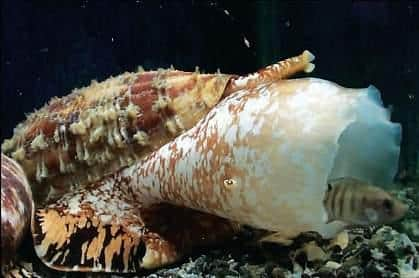Scottish scientists say venom from sea snails could hold key to future painkillers
The cone snail’s venom contains chemicals called conotoxins, which the creature uses to paralyse its prey by blocking parts of their nervous system.
Scientists believe a modified version of the poison could form the basis of future drugs capable of blocking pain receptors in the human body.
Advertisement
Hide AdAdvertisement
Hide AdLed by a team from the University of Glasgow, scientists are setting out to learn more about the unique venom produced by the sea creatures.


Andrew Jamison, the project’s principal investigator, said while the “cone snail might seem like an unlikely prospect for breakthroughs in drug discovery”, the conotoxins it produces “have a lot of intriguing properties which have already shown promise in medicine”.
He said researchers at the university, alongside those at the Defence Science and Technology Laboratory (DSTL), will work to investigate how conotoxin peptides are structured at the molecular level.
Once researchers have unlocked the secrets, new drugs based on their findings will be developed and investigated.
Dr Jamison said: “Those new molecules’ ability to interact with nicotinic acetylcholine receptors could lead to new forms of muscle relaxants for anaesthesia, or painkillers which are just as effective as opioids but don’t have the same associated potential for addiction.
“It’s an exciting project and we’re looking forward to getting started.”
Humans are rarely seriously injured by cone snails but their stings have killed people.
There is no anti-toxin available at the moment, meaning serious stings cannot be treated.
A message from the Editor:
Thank you for reading this article. We're more reliant on your support than ever as the shift in consumer habits brought about by coronavirus impacts our advertisers.
If you haven't already, please consider supporting our trusted, fact-checked journalism by taking out a digital subscription at https://www.scotsman.com/subscriptions
Comments
Want to join the conversation? Please or to comment on this article.